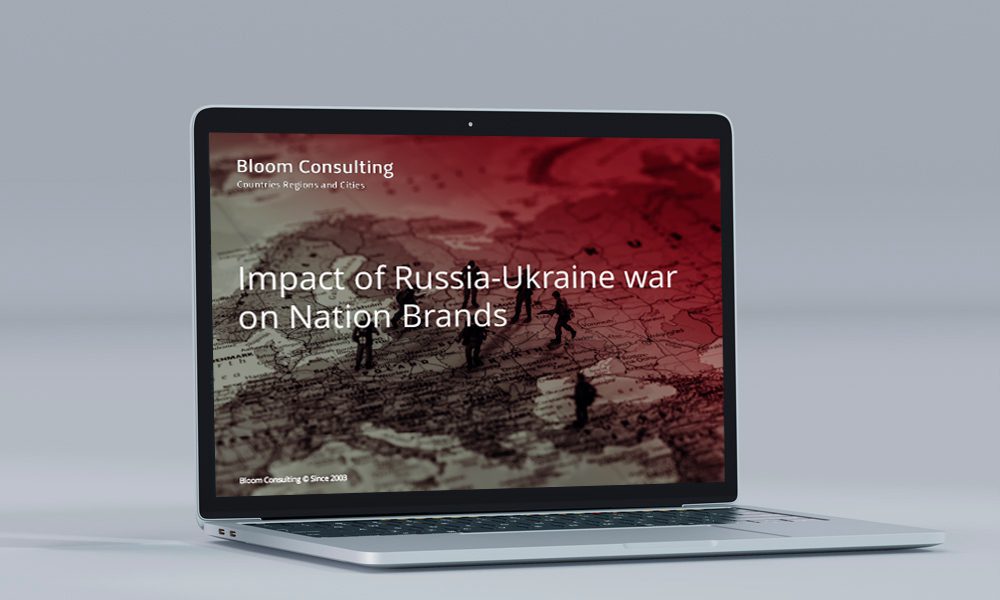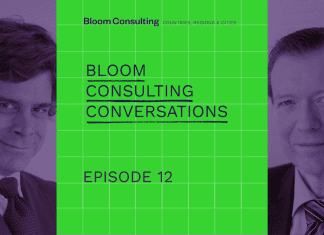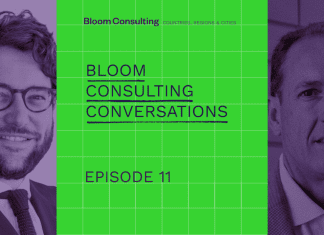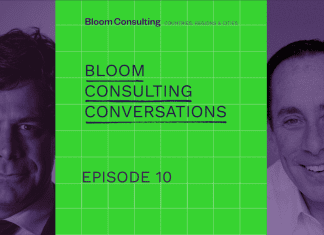Any crisis is an alarm for countries to keep an eye on how their actions on the crisis impact perceptions of their Country Brands. In Bloom Consulting we measure the sensitiveness of Nation Brands to crises that are either prolonged, have a high level of intensity, or tend to impact perception of a country’s culture, history and people.
In March 2022 Bloom Consulting launched an independent global study to evaluate how the current Russia-Ukraine war is impacting perceptions of countries, as well as to understand how much countries’ responses towards the war are affecting people’s intentions to visit, work or study, do business or buy products from these countries.
Methodology
Bloom Consulting launched its global survey using its D2-Live Quanti © Software. During the last week of March until the first week of April 2022, 1500 citizens from 43 countries across the globe were surveyed, but all domestic opinions were removed from local markets as the objective of the study was to measure external perceptions. Russian and Ukrainian citizens were purposely not included in this study.
Moreover, Bloom Consulting divided the sample analysis into two tiers:
Tier one: Global perceptions of countries not directly involved in the conflict, Ukraine and Russia excluded.
Tier two: Perceptions about Russia and Ukraine specifically.
This division was created in order to avoid distorted views of the two predominant countries versus the rest of the world.
Finally, a myriad of factors, from a country’s political stance, culture, and history, may influence the perception of the country and its Nation Brand. The study did not intend to observe closely every political, historical and cultural interweaving, but to measure how countries’ current actions on the crisis are affecting perceptions. Such a framework allows us to define how resilient Nation Brands are to crises.
Research highlights
Countries: winners and losers in terms of perception
As history showed us many times, wars have no winners. When Bloom Consulting talks about winners and losers, it is referencing Global perceptions of countries that are being impacted by the drastic crisis.
In the first part of the survey, respondents from all over the world were asked to name countries that, in their opinion, dealt well or not so well in managing this “crisis”. More than 65 countries were mentioned at least twice by citizens around the world. This denotes a high intensity and exposure to Nation Brands. As a reference, this figure was three times higher in Bloom Consulting previous research on the “Impact of Covid 19 on Nation Brands” and “Impact of Covid 19 on Tourism Behaviours”, but that crisis was taking place in every country.
According to these recent results, some strong Nation Brands with legacy, like Japan, didn’t manage to overcome the drop in perceptions although acting swiftly on the crisis. This may have occurred either because these countries didn’t have enough exposure on their actions concerning the war, or people expected more from the strong reliable brands, such as Japan. At the same time, we observe emerging country brands popping up on the map like Poland, Romania and Moldova.
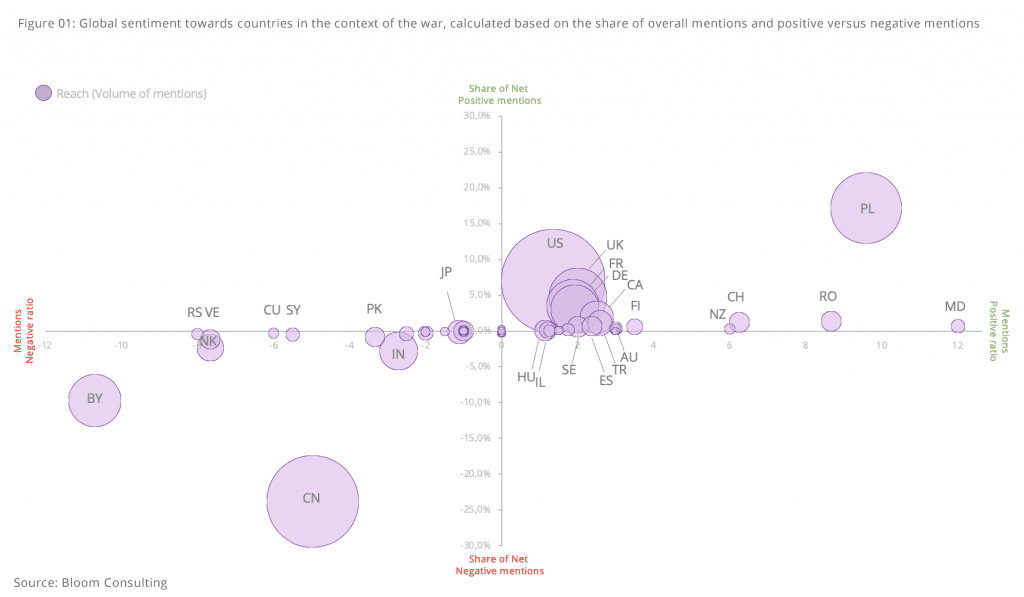
When placed in a Rank, this is how the list of Countries score overall:
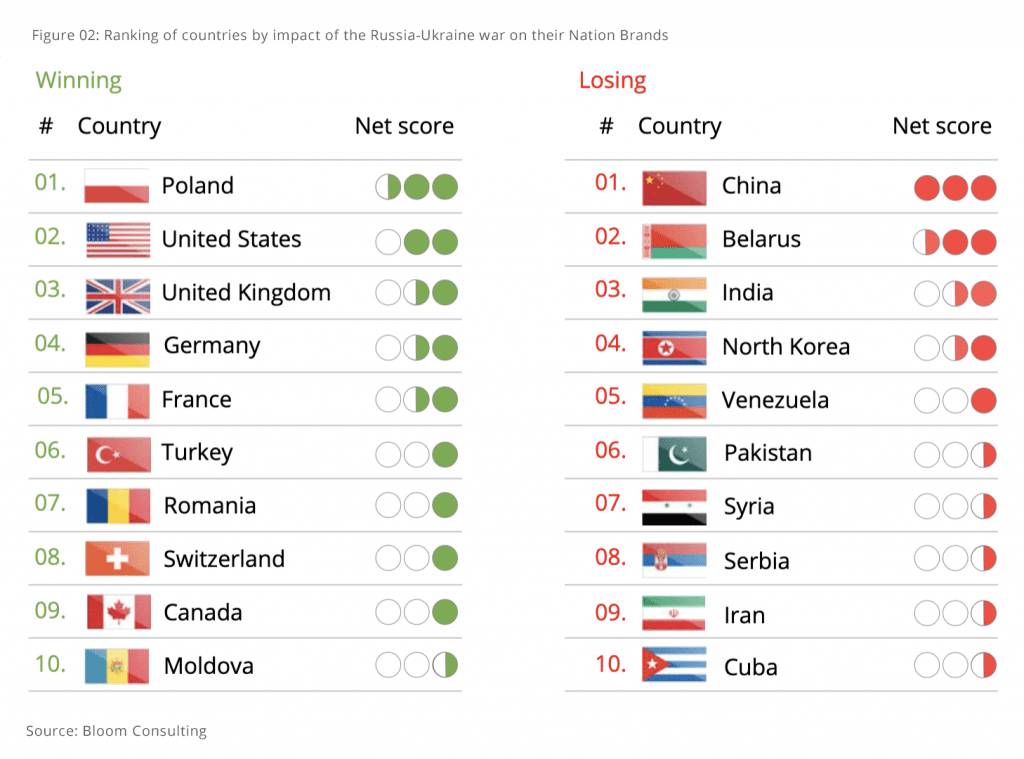
The “winners”: Poland, USA, UK, Germany, France, Turkey, Romania, Switzerland and Canada, with a special mention for Moldova which performed extremely well according to respondents.
The “losers”: The ones being affected negatively are China, Belarus and India and therefore account for the biggest negative impact. The positions of countries on the crisis-management map change as per world regions.
The Brand-Nought — Measuring the level of toxicity of crisis in Nation Brands
Assuming that not every crisis has the same impact on Nation Brands, Bloom Consulting employs the Nation Brand-Nought Ratio, an indicator of the ideal proportion of Global Citizens with positive perception, to “neutralise” the ones with a negative one.
This crisis has a Brand-Nought (B0) of 2. This means that one negative perception can only be “neutralised” by two positive ones. As a reference, the B0 of Covid 19 crisis management was 1.8. So, this means the Russia-Ukraine war, if not dealt with correctly, is very toxic for Nation Brands.
When overlapping the two defining layers of the crisis, with the Brand-Nought and the crisis management top of mind, we see that although some countries are among “top-of-mind winners”, they may not be “winners” after all.
For instance, the USA, the leader by share of overall mentions, appears in the red area as per Brand-Nought. The Nation Brand will have to invest more efforts into gaining positive perceptions in future because the Brand-Nought is 2 — two positive opinions are needed to neutralize one negative.
In the meantime, Moldova, Romania, Switzerland, New Zealand stand out on the global map with many positive mentions and on the green area as per Brand-Nought.
The outstanding performance of Poland on crisis mitigation provides the Nation Brand with unanimous support by global citizens. On the other hand — Belorussia and China are countries that will have to make a gigantic jump to restore their reputation.
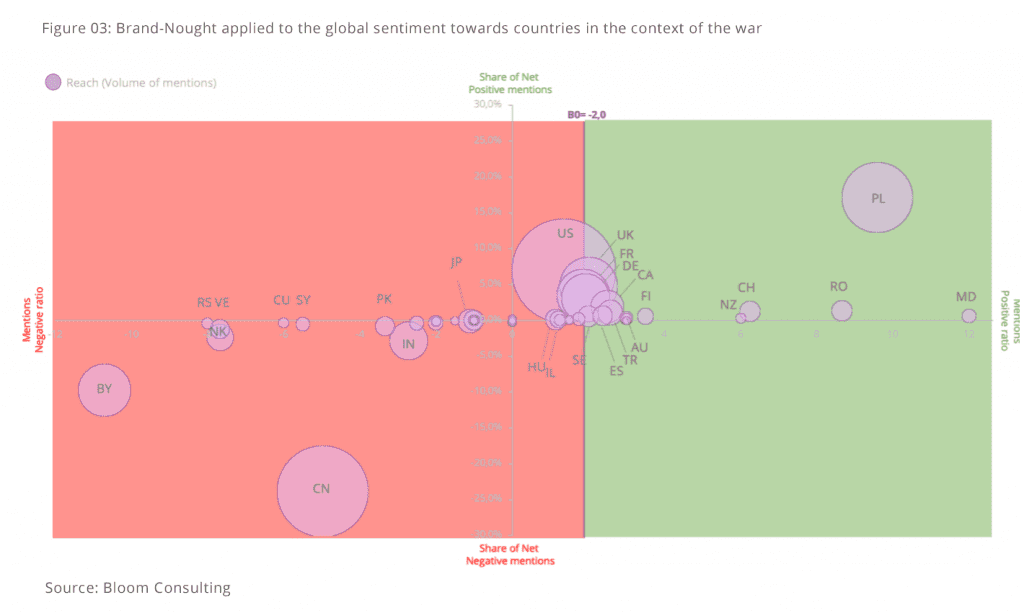
“Is it appropriate to care about managing reputation while the war is unfolding?” — was a very important question raised at the webinar held at the end of the research. Country or Nation reputation is being formed by real actions, not by words.
First, do the right thing, and then give a proper exposure to the action to make a change and serve as an example of good practice of crisis-management for others. This is what Bloom Consulting recommends countries to do from a Nation Brand perspective in times of crisis like this one.
Russia and Ukraine: comparative analysis
The two countries are the most impacted ones from the nation and country brand perspective. The purpose of the comparative analysis is to measure how the devastating crisis is affecting perceptions of both countries.
We asked respondents across world regions to evaluate how the war is affecting the perception of each country distinctively. Although the results, when compared by world regions, differ slightly, we observe the unified polarization of perception of the two countries across all world regions.
Except for the Middle East, most respondents from the world regions rated perception of Ukraine as being positively affected by the war. The situation is different in the case of Russia — the majority of respondents across the globe had increased negative perception of Russia due to the war.
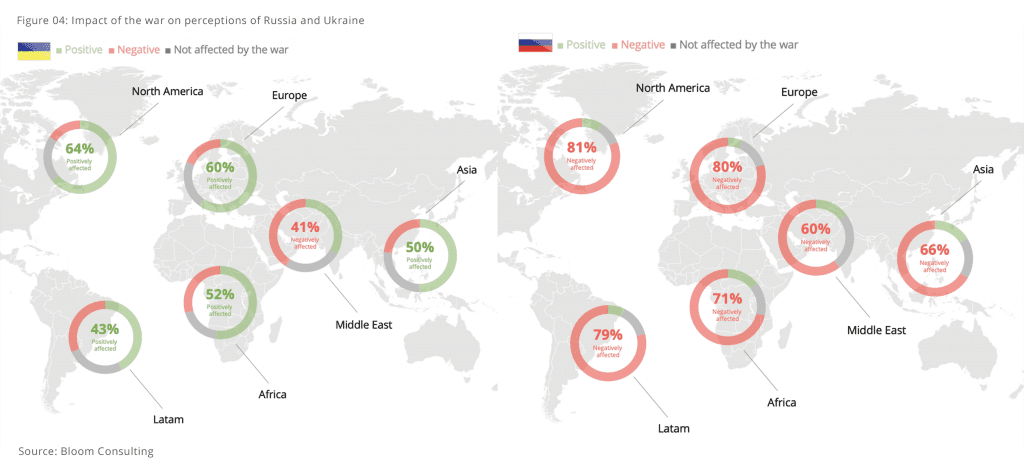
Anti-Russia sentiment on the rise?
Finally, we wanted to check whether the seemingly rising wave of anti-Russia sentiment is holistic and happening worldwide. In general, the study confirmed that the perceptions both of Russian citizens and the Russian government are being negatively affected by the war. Although the share of negative perception of citizens is significantly smaller than perceptions of the Russian government, the results are quite negative. There is a “contamination” of the Russian government’s actions on the perception of Russian culture as a whole. This results in the world’s belief that Russian citizens support this war.
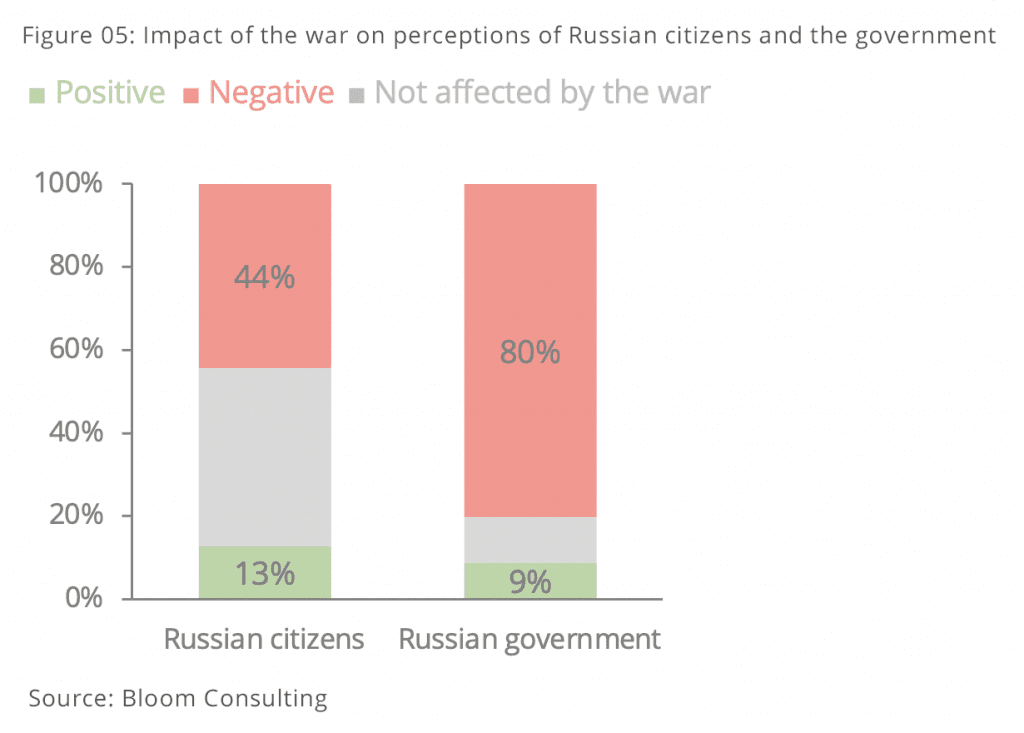
In this article, we highlighted the main insights from the study. We highly recommend readers download the full report and take a closer look at the results, especially the comparisons by world regions and by the level of familiarity with Russia and Ukraine. Also, please watch the webinar with comments by Bloom Consulting’s CEO Jose Torres available on our Youtube Channel or on the CNP Channel.
Contact us to get insights about this study and our advice on how to manage Nation Brands in times of crises.
Published on 10.05.2022.

